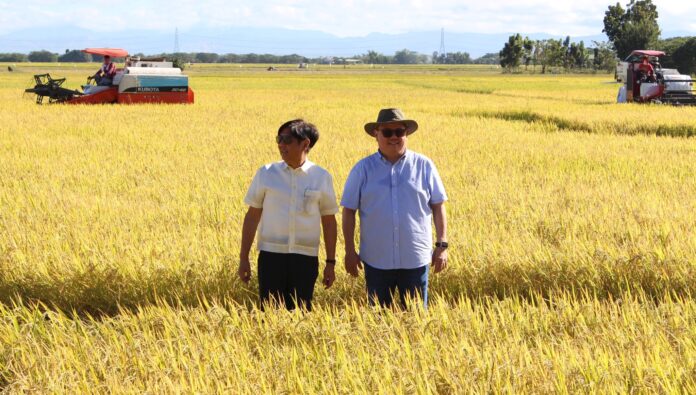In his State of the Nation Address (SONA), President Ferdinand Marcos Jr. spotlighted contentious issues surrounding rice prices, tariff adjustments, and cash incentives for farmers—drawing mixed reactions across sectors—and coinciding with intensifying competition in the power sector, particularly in Batangas.
Marcos Jr., also known by the initials PBBM, defended his administration’s push for lower rice tariffs to tame inflation and stabilize market prices, arguing it would benefit consumers.
“Blaming the P20 per kg rice for the unprecedented drop in palay farmgate price is incorrect. We squarely blame the self-inflicted disaster that is Executive Order 62 that lowered rice import tariffs to 15 percent, as the principal culprit,” Jayson Cainglet, Samahang Industriya ng Agrikultura executive director, observed.
This view, however, drew sharp criticism from farmer groups and some lawmakers who warned this could undermine local agriculture and reduce farmgate prices, further exacerbating rural poverty. Policy analysts pointed to the need for a delicate balance between consumer welfare and food security, underscoring concerns about long-term agricultural sustainability.
The President also touted direct financial aid to farmers as a mitigating measure for the proposed tariff cuts. But critics argued that such incentives are short-term fixes that fail to address systemic issues in agriculture, including poor infrastructure and inadequate post-harvest support.
Parallel to the national economic debate, a major corporate rivalry is unfolding in Batangas with significant implications for local power distribution. Meralco, through a newly signed memorandum of understanding, is eyeing a joint venture with the Batangas I Electric Cooperative (BATELEC I) to convert the latter into a stock corporation. This would pave the way for private investment, promising grid upgrades and service improvements.
Challenging this plan is Primelectric Holdings, a company under tycoon Enrique Razon, which has made similar moves in other regions like Iloilo. Both business groups are pushing modernization agendas, but stakeholders remain divided over the best path forward.
The National Electrification Administration (NEA) is expected to weigh in on the BATELEC I conversion. Meanwhile, cooperative members may be called to vote, injecting public sentiment and regulatory compliance into the already high-stakes corporate showdown.
The twin debates—over food security and energy privatization—highlight deeper questions about the Marcos administration’s economic strategy. With competing interests between major conglomerates and grassroots stakeholders, the outcomes could reshape policy direction in both agriculture and energy for years to come.







